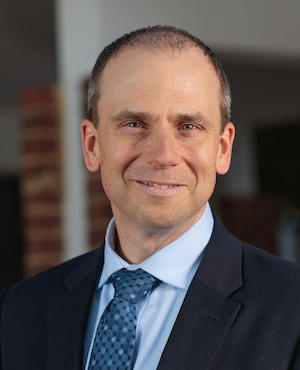The coronavirus pandemic has created a profound shift in how we interact and socialize, leading to increased anxiety for many people. Now that we are moving toward more in-person interaction with the goal of eventually returning to normalcy, one George Mason University professor says some people may experience more anxiety.
“For some people, it will be tough to go back,” said Keith D. Renshaw, chair of the College of Humanities and Social Sciences’ Psychology Department and director of the Military, Veterans and Families Initiative. “Many of us have spent the year with reduced human interactions. For people with anxiety, this has meant they’ve been able to turn off the technology when they needed to unplug.”
Some individuals with anxiety are constantly censoring themselves and worrying about how they will be perceived, Renshaw said. Working remotely and staying away from people for public health reasons has been a reprieve for them in some ways.
“When you interact with people in person, you can’t just turn off your video or pretend your Internet isn’t working when you need some time away,” said Renshaw. “You have to keep looking people in the eye, and this is going to make some people uncomfortable.”
Renshaw suggests that individuals who feel overwhelmed by a return to society do so in steps.
“You should push yourself to engage, but don’t overdo it,” said Renshaw. “Don’t try to return to a flood of interpersonal interactions all at once.”
Renshaw also said that the next few months will be tricky navigating personal relationships, as some people are vaccinated and others are not.
“Early on, many of us had frank, open conversations about what level of risk we were comfortable with in our personal relationships,” said Renshaw. “We are going to have to have another round of those conversations.”
Renshaw noted that “we will have a period of time too in which adults are vaccinated and children are not.”
It is natural, said Renshaw, to want to avoid discussions that are uncomfortable. Nevertheless, he emphasized it’s important to have “intentional, open conversations about the relative risks of getting together with family and friends, especially when it comes to our children as they remain unvaccinated.”
Renshaw also said that as we get back together in person, there will a split in how people want to talk about the coronavirus pandemic. Each person has experienced the pandemic differently, with some people losing loved ones or affected by illness, loss of jobs or isolation.
Some people will want to process the last year and their losses together, he said.
“Other people under stress put their heads down and push through,” said Renshaw. “When they are done, they are out of it.”
To reach Keith Renshaw directly, contact him at krenshaw@gmu.edu
For more information, contact Anna Stolley Persky at apersky@gmu.edu
About George Mason
George Mason University is Virginia’s largest public research university. Located near Washington, D.C., Mason enrolls more than 38,000 students from 130 countries and all 50 states. Mason has grown rapidly over the past half-century and is recognized for its innovation and entrepreneurship, remarkable diversity and commitment to accessibility.

